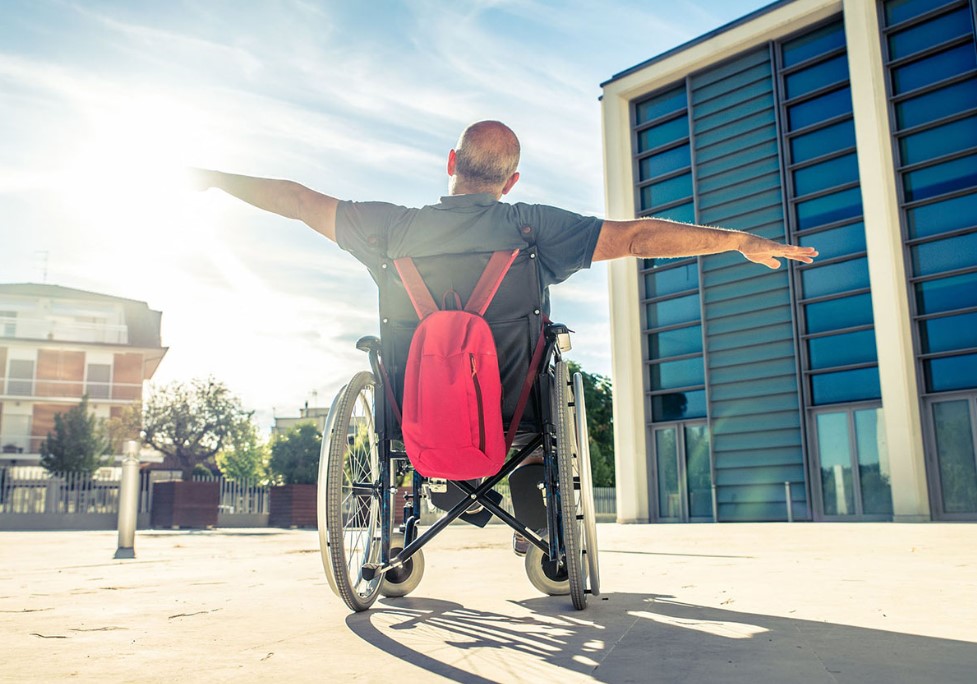1. Why Independent Living Services are Essential
Independent living services play a crucial role in empowering individuals with disabilities to lead fulfilling and self-directed lives. These services are designed to support individuals in gaining the skills, resources, and confidence necessary to live independently and participate in their communities. By focusing on enhancing independence, these services enable individuals to navigate their daily lives, build social connections, pursue educational and employment opportunities, and ultimately achieve a sense of autonomy and self-sufficiency.
Understanding the Importance of Independence
Independence is a fundamental human right that everyone deserves, regardless of their abilities. It allows individuals to make choices, exercise control over their lives, and fully participate in society. For individuals with disabilities, independence may be particularly vital as it can break down barriers and promote inclusion. When individuals have the necessary tools and support to live independently, they can overcome obstacles, advocate for themselves, and contribute to their communities in meaningful ways.
The Benefits of Independent Living Services
Independent living services provide a wide range of benefits to individuals with disabilities. These services offer personalized support and guidance to help individuals develop the skills needed to navigate daily life tasks, such as personal care, household chores, and budgeting. By mastering these skills, individuals can lead more fulfilling lives and experience a greater sense of self-confidence and self-reliance.
Moreover, independent living services also focus on building social connections and community inclusion. By developing social skills, individuals can form meaningful relationships, participate in community activities, and feel a sense of belonging. These connections can foster personal growth, increase self-esteem, and provide a support network that is instrumental in times of need.
Additionally, independent living services assist individuals in exploring educational and employment opportunities. By providing guidance on educational options, support services, and career development, these services open doors to personal growth and financial independence. Through education and employment, individuals with disabilities can not only achieve their full potential but also contribute their talents and skills to society.
Setting Up an Independent Living Support System
Building a strong and effective support system is crucial for successful independent living. It involves identifying the individuals, organizations, and resources that can provide ongoing support and assistance. This can include family members, friends, support groups, community organizations, and professionals specializing in disability services.
Setting up a support system requires clear communication, trust, and collaboration. It is essential to involve all stakeholders in the planning process, including the individual receiving services, to ensure their needs and preferences are respected. Regular assessments and check-ins can help identify any challenges or areas where additional support may be required.
2. Enhancing Daily Living Skills
Developing and mastering daily living skills is a vital component of independent living. These skills encompass a wide range of activities that are essential for individuals to take care of themselves and their homes. By focusing on enhancing these skills, individuals can become more self-reliant and capable of managing their daily routines with confidence.
Developing Self-Care and Personal Hygiene Habits
Self-care and personal hygiene are essential aspects of daily living. Independent living services can provide guidance and training to help individuals develop effective self-care routines. This may include techniques for personal grooming, bathing, dressing, and maintaining oral hygiene. By mastering these skills, individuals can enhance their self-esteem, overall well-being, and ability to participate in social activities.
Mastering Household Chores and Home Maintenance
Managing household chores and home maintenance tasks is crucial for maintaining a safe and comfortable living environment. Independent living services can assist individuals in learning essential skills such as cooking, cleaning, doing laundry, and organizing their living space. By mastering these tasks, individuals can take pride in their homes, develop a sense of responsibility, and live in a clean and organized environment.
Effective Budgeting and Money Management Techniques
Financial independence is a key aspect of independent living. Independent living services can provide individuals with the knowledge and skills needed to manage their finances effectively. This includes budgeting, tracking expenses, understanding banking and credit systems, and planning for the future. By becoming financially literate, individuals can make informed decisions, avoid financial hardship, and work towards achieving their goals and aspirations.
3. Building Social Connections and Community Inclusion
Building social connections and fostering community inclusion are essential for leading a fulfilling and meaningful life. Independent living services can support individuals in developing social skills, exploring community resources, and forming meaningful relationships.
Developing Social Skills and Building Confidence
Social skills are crucial for building and maintaining relationships. Independent living services can offer guidance and training in areas such as effective communication, conflict resolution, and building self-confidence. By acquiring these skills, individuals can navigate social situations with ease, form meaningful connections, and participate fully in their communities.
Exploring Community Resources and Activities
Communities offer a wealth of resources and activities that can enhance individuals’ quality of life. Independent living services can assist individuals in identifying and accessing community resources such as recreational facilities, support groups, vocational training programs, and cultural events. By participating in these activities, individuals can expand their horizons, pursue personal interests, and feel a sense of belonging within their communities.
Forming Meaningful Relationships with Peers
Forming meaningful relationships with peers is an integral part of social inclusion. Independent living services can facilitate opportunities for individuals to connect with others who share similar experiences and interests. This can include joining support groups, participating in social events, or engaging in hobbies and recreational activities. By forming these relationships, individuals can build a support network, share experiences, and foster a sense of belonging and understanding.
4. Promoting Education and Employment Opportunities
Education and employment play a crucial role in fostering independence and self-sufficiency. Independent living services can guide individuals with disabilities in exploring educational options, finding and maintaining employment, and developing transferable skills for career success.
Exploring Educational Options and Support Services
Education is a gateway to personal growth, skill development, and increased employment opportunities. Independent living services can assist individuals in exploring educational options, including traditional academic routes, vocational training programs, and online learning platforms. Support services such as tutoring, accessible accommodations, and assistive technology can also be provided to ensure individuals have equal access to education.
Tips for Finding and Maintaining Employment
Obtaining and retaining employment can provide individuals with a sense of purpose, financial stability, and increased independence. Independent living services can offer guidance on job searching strategies, resume writing, interview preparation, and workplace accommodations. By equipping individuals with the necessary tools and skills, these services increase the likelihood of finding meaningful employment and thriving in the workplace.
Developing Transferable Skills for Career Success
Transferable skills are those skills that can be applied across various job roles and industries. Independent living services can assist individuals in identifying, developing, and showcasing their transferable skills. These skills may include effective communication, problem-solving, teamwork, and adaptability. By honing these skills, individuals can increase their employability and navigate career transitions with confidence.
In conclusion, independent living services are essential in enhancing individuals’ independence and overall quality of life. By focusing on various aspects such as daily living skills, social connections, and education and employment opportunities, these services empower individuals with disabilities to lead self-directed and fulfilling lives. Through comprehensive support and guidance, individuals can overcome barriers, navigate challenges, and achieve their goals, ultimately realizing their full potential and contributing to their communities.
FAQ
Question: What are independent living services? – Independent living services are designed to support individuals with disabilities in gaining the skills, resources, and confidence necessary to live independently and participate in their communities.
Question: Why are independent living services important? – Independent living services empower individuals to lead fulfilling and self-directed lives by providing personalized support for developing daily life skills, building social connections, exploring educational and employment opportunities, and achieving a sense of autonomy and self-sufficiency.
Question: How do independent living services enhance daily living skills? – Independent living services assist individuals in developing and mastering daily living skills, such as self-care and personal hygiene, household chores and home maintenance, and effective budgeting and money management techniques.
Question: What is the role of independent living services in building social connections and community inclusion? – Independent living services support individuals in developing social skills, exploring community resources and activities, and forming meaningful relationships with peers, ultimately fostering community inclusion and a sense of belonging.
Question: How do independent living services promote education and employment opportunities? – Independent living services assist individuals in exploring educational options and support services, provide guidance on finding and maintaining employment, and help develop transferable skills for career success.
Question: How can I set up an independent living support system? – Building a strong and effective support system for independent living involves identifying individuals, organizations, and resources that can provide ongoing support and assistance. Communication, trust, and collaboration are essential, and regular assessments and check-ins can help identify any additional support needs.
Question: What are some benefits of independent living services? – Independent living services provide personalized support and guidance, helping individuals develop daily life skills, build social connections, explore educational and employment opportunities, achieve financial independence, and experience a greater sense of self-confidence and self-reliance.
Question: How does independence impact individuals with disabilities? – Independence is a fundamental human right that allows individuals to make choices, exercise control over their lives, and fully participate in society. For individuals with disabilities, independence can break down barriers, promote inclusion, and empower individuals to overcome obstacles, advocate for themselves, and contribute to their communities in meaningful ways.



